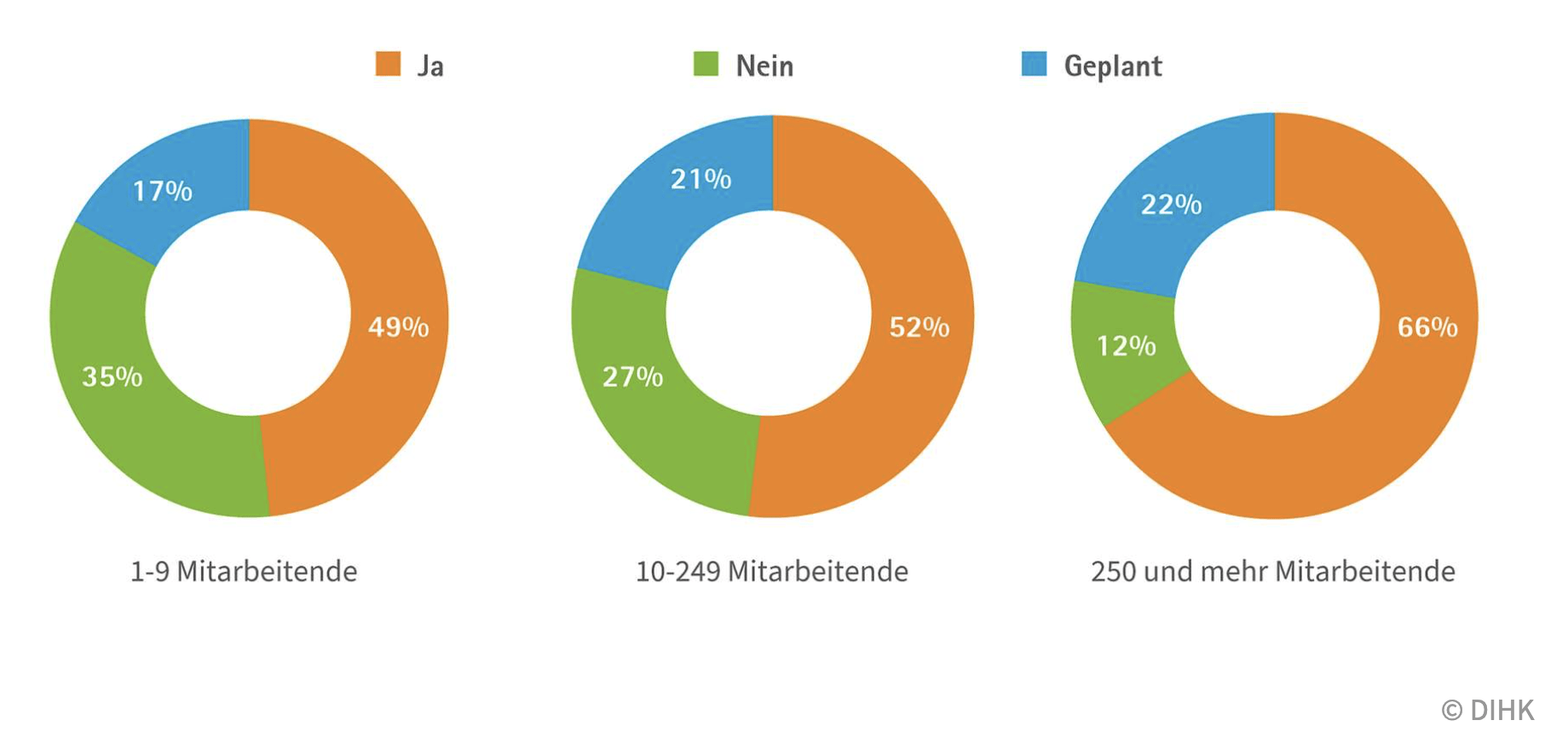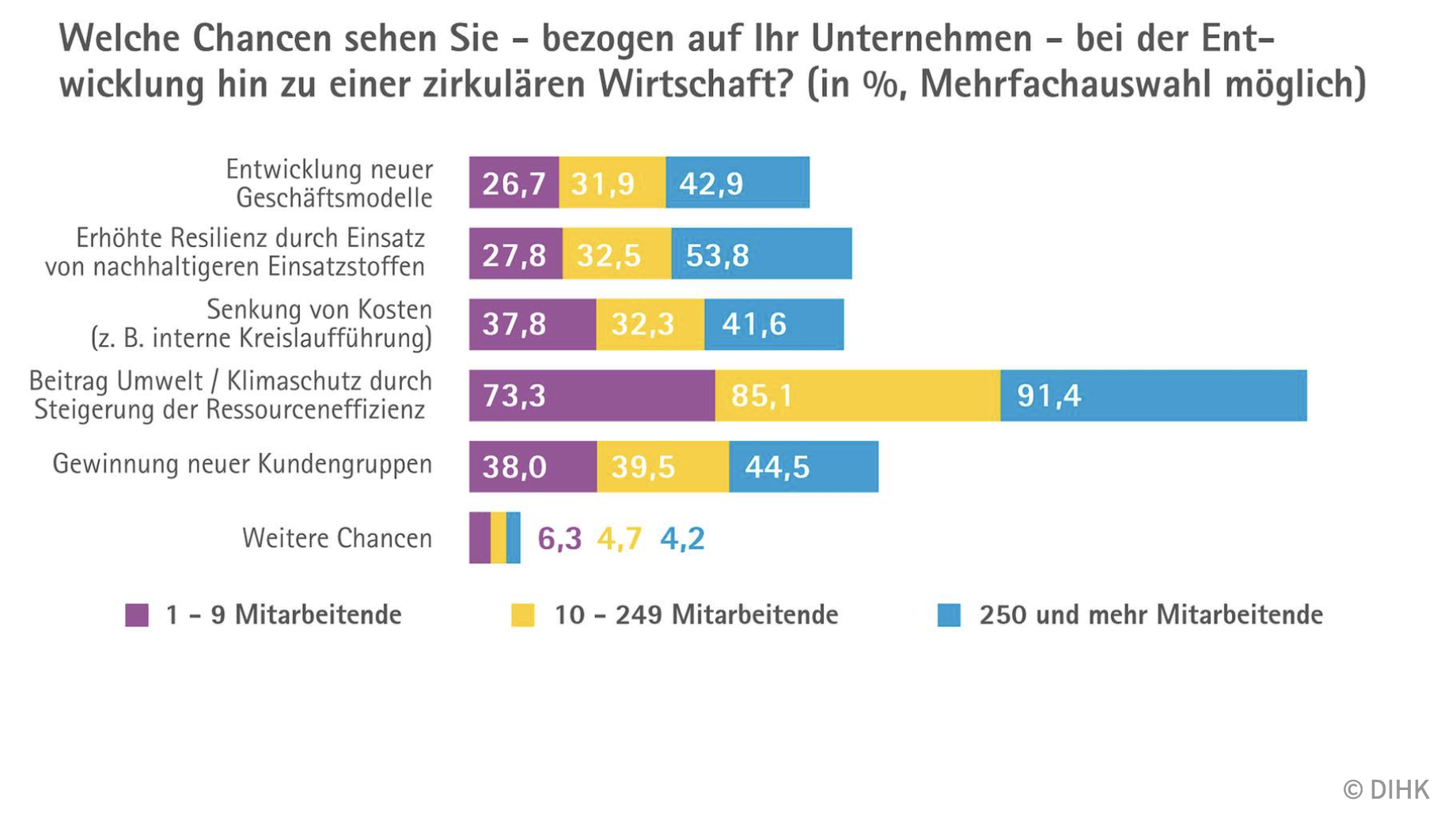 Many German companies see a transformation of the German economy to a “circular economy” as beneficial for their own business – but only under the right conditions. This is the result of a survey by the German Chamber of Industry and Commerce (DIHK).
Many German companies see a transformation of the German economy to a “circular economy” as beneficial for their own business – but only under the right conditions. This is the result of a survey by the German Chamber of Industry and Commerce (DIHK).
2,000 companies from all sectors and regions took part in the survey. More than half of them see the conversion of their own business as an opportunity in general.
“Companies hope that the transformation will give them concrete advantages over their competitors,” reports the DIHK Deputy Managing Director Achim Dercks.
According to the survey, these include savings in material costs and increased independence and resilience in the supply chains. A possible improvement in image among customers and employees also plays a role. Four out of ten companies hope to win new customers as a result.
Companies are therefore often already working on the concrete implementation in everyday operations. More than every second company is already considering how they can combine their business model with elements of the circular economy.
Achim Dercks: “The companies’ assessments show that in Germany we generally have the opportunity to strengthen the economy and protect the environment with the transformation to the ‘circular economy’. Germany already has high recycling rates and great industrial know-how compared to other countries. We should use these advantages to establish German companies as trendsetters for green products.”
The survey also shows, however, that a successful transition to a circular economy is by no means a given from the companies’ point of view, but is tied to crucial conditions. The first condition is a comprehensive expansion of digital networks. Only with the appropriate digital infrastructure will companies be able to build up data storage and processing capacities, which in turn form the basis for approaches such as the digital product passport. The second condition is a uniform legal framework across Europe. Thirdly, work must be done to establish a functioning market for recycled products.
 Companies are also worried about new burdens. Three out of five companies are already warning of even greater documentation effort and the personnel required for this. At least every second company also fears higher costs when purchasing raw materials and intermediate products. More than every third person surveyed also sees a risk in the availability of secondary raw materials. The labour shortage and the current cost advantage of natural raw materials are also cited as challenges.
Companies are also worried about new burdens. Three out of five companies are already warning of even greater documentation effort and the personnel required for this. At least every second company also fears higher costs when purchasing raw materials and intermediate products. More than every third person surveyed also sees a risk in the availability of secondary raw materials. The labour shortage and the current cost advantage of natural raw materials are also cited as challenges.
“Many companies see the opportunities offered by the development of a circular economy,” summarises Dercks. “Politicians should take advantage of this positive mood and set the right course now. In doing so, it is important to consider securing the competitiveness of companies more than in the past. Three quarters of companies believe that uniform standards for the circular economy within Europe are key building blocks for this.”
The full report can be found here.




















